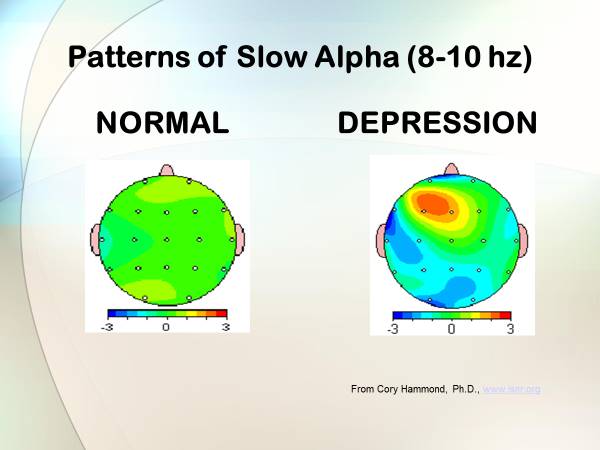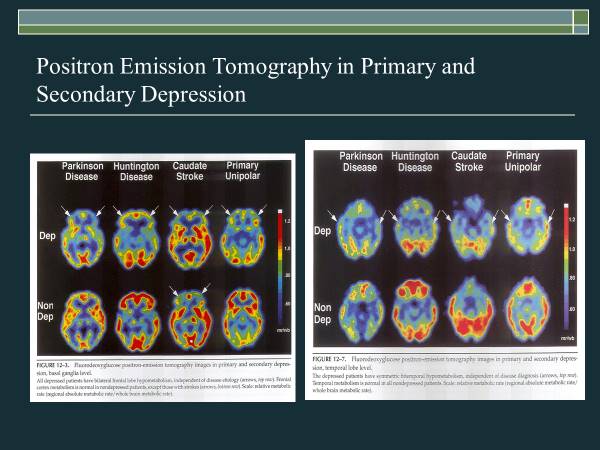Depression is more than being sad.
A lot of bad moods may go along with some of these other issues.

- Loss of interest and enjoyment
- Increased fatigue
- Reduced concentration and attention
- Ideas of guilt and unworthiness
- Ideas or acts of self-harm or suicide, thoughts of death
- Sleep disturbance
- Disturbed appetite/weight change
- Pessimistic view of the future
- Reduced self-esteem and self-confidence
- Early-morning awakening
- Mood worse in the morning
- Psychomotor retardation or agitation
- Weight loss
- Loss of libido
All of these issues can interfere with normal functioning at home, work or school. Anxiety disorders may accompany depression and can impair social, occupational or interpersonal functions.

What you want is a lot more good days and no more the bad days. What you want is a greater capacity for happiness, even joy in your life.
We know that bad moods are seen in the brain as imbalance of the medium fast alpha brain waves. Usually we find too few alpha waves in the left front of the brain.
EEG biofeedback can correct this imbalance.
By training and practicing making balanced brain wave patterns you will notice that bad moods are less bad. As your mood lifts you can see the positive side and begin to enjoy life again.
It is a pleasure for me to watch symptoms decline while people regain their activities and launch new ventures with gusto.

Please Contact Me
If this is an issue for you or someone you know, please contact me to learn if neurofeedback may be an appropriate treatment. We’ll talk briefly on the phone or chat via email and then set up a time to meet.
Research
Neurofeedback works better than psychotherapy.
“Is alpha wave neurofeedback effective with randomized clinical trials in depression? A pilot study”. Neuropsychobiology. 2011
https://www.ncbi.nlm.nih.gov/pubmed/21063132
Remission or significant improvement (50%) occurred in 84% of subjects…
FP02 Beta Training for Drug-Resistant Depression—A New Protocol That Usually Reduces Depression and Keeps It Reduced.
Journal of Neurotherapy, 2013
http://www.isnr-jnt.org/article/view/16486
Neurofeedback helps treatment resistant depression.
https://www.sciencedaily.com/releases/2017/09/170904093440.htm?utm_content=buffer8682f&utm_medium=social&utm_source=twitter.com&utm_campaign=buffer
It’s not chemical, it’s electrical. Sluggish left frontal areas are associated with depression.
Left frontal hypoactivation in depression.
J Abnorm Psychol. 1991
https://www.ncbi.nlm.nih.gov/pubmed/1757667
A recent meta-analysis supported the asymmetry model of depression based on resting EEG data.
Depression, anxiety, and resting frontal EEG asymmetry: a meta-analytic review.
J Abnorm Psychol. 2006;115:715–729.
https://www.ncbi.nlm.nih.gov/pubmed/17100529
“EEG neurofeedback for depression has mainly been based on models of altered hemispheric asymmetry.”
Neurofeedback and networks of depression, 2016
Dialogues in Clinical Neuroscience
https://www.ncbi.nlm.nih.gov/pmc/articles/PMC3984886/
“I used to have mental problems that would consume my life.
But now I’m just living a great life.”
“I can’t believe how much this biofeedback helped me overcome that head trash.
Life is so much better now.”
“Biofeedback has been great for me.
It really worked to overcome my issues.”
“I used to have a slew of problems.
Those are gone now and I have moved on.”
“This is amazing. I feel so good every time we are done with a session.
Such a huge impact on my life. Thank you.”
“I have grown so much over the past 2 months.
This freedom is wonderful.”

